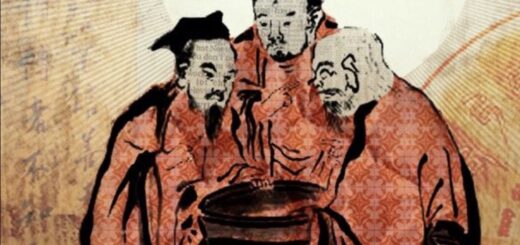Are you a hedgehog or a fox ?

What would you prefer to be, a hedgehog or a fox?
Enter the world of political, economic or any different business arena, where the leadership qualities of the kingpins are metaphorically characterised as, either a hedgehog or a fox.
Modern jungle
What are the defining features of hedgehog and fox in the current world? Who is your best bet? Are there any clear winners here?
The concept date back to
The Hedgehog and the fox concept is credited to a parable by the Greek poet, Archilochus, who wrote, a few centuries ago that,
- A fox knows many things,
- but a hedgehog
- one important thing.
Put simply
The fox has many clever manners of achieving his motives or evading its predators. In contrast, the hedgehog knows only one thing to defend itself against the predators, and that one thing they do exceptionally well, just curl up into a spiky ball and stay still.
Re-adaptation of the parable in the ’50s
In the 1950’s Philosopher, Isaiah Berlin adopted this idea, in his essay on Tolstoy, “The hedgehog and the fox”.
Berlin discusses a metaphorical fox and hedgehog and how the differences in their behaviour and approaches were reflective of two kinds of human reasoning.
Berlin’s view of thinkers and philosophers
Berlin aimed to divide the world of thinkers and philosophers into two categories.
Hedgehog, who sees everything through a single perspective, and holds just one fundamental belief.
Whereas the Foxes pursue many goals and interest at the same time, see the world as complex, and can embrace multiple and contradictory ideas,
Berlin’s prototypes
Berlin focused his work on the legendary author Leo Tolstoy. Based on his analysis of the novel War and Peace, Berlin concluded that, though Tolstoy’s talents were that of a fox, his fundamental attitudes were that of a hedgehog.
Plato, Dante, Nietzsche, Proust, Hegel were a few hedgehogs in Berlin’s view, while Aristotle, Shakespeare and Desiderius were regarded to be foxes in their outlook.
Modern World, new definitions

The fable has extended and reached all the fields and corners of the contemporary world. Virtually every area has adopted the Hedgehog and fox mantra for forecasting the future, vastly in the political arena.
Scholars view
Scholars have differed about the interpretation of these words over the years.
Philip Tetlock, a political, psychological professor widely recognised for his work on forecasting, is an ardent believer of this distinction and infer that it signifies two cognitive styles. We know more about modern hedgehog and foxes through his views.
Know the modern hedgehog
The old dictum, that, hedgehogs know one big thing is fundamental here. They have a single theory about the world; they account for particular events within a coherent framework, bristle with impatience toward those who don’t see things their way and are confident in their forecasting abilities. They are reluctant to admit error, very opinionated and clear about their views. They are the big idea people, are more decisive, as well as better leaders.
See who is doing all the talk
You spot the hedgehogs everywhere. On the television talk shows, you watch the experts in different domains incessantly arguing about their one big thing. It is the hedgehogs who get invited to participate in such fierce debates, as they keep on insisting, unwavering, defending their own beliefs and ignoring the perspectives of others. That makes a good show.
Foxes are not cunning anymore
Foxes, by contrast, are complex thinkers. They don’t believe in one big thing; instead, they have many small ideas. They recognise that reality emerges from the interactions of many different agents and forces, including luck, often producing broad unpredictable outcomes. They pursue many ends, often unrelated and even contradictory, They are humble, flexible and apologise for any wrongdoing.
They embrace multiple views, are skeptical about grand theory and diffident about their ability to forecast. They have a different strategy for different problems, are comfortable with nuances, and they can live with contradiction

Why hedgehog gets more fan following
The world of historians and business researchers have opposing views when it comes to upholding the hedgehog or the fox strategy.
They have scanned the leadership qualities of most of the world leaders and businesses men through this distinction and have categorised them accordingly.
Business researcher and consultant Jim Collins developed the idea to focus on the hedgehog concept for organisational success. Gary Keller, in his bestseller “The one thing”, endorses the hedgehog strategy.
Few hedgehogs and foxes you may know
I am selecting a few familiar names from the pretty long list provided by the experts.
George Washington, Reagan, Putin, Steve Jobs, Walt Disney belong to the hedgehog group, whereas Elon Musk (?), Larry page belong to the fox category.
You can agree or think differently with them, as this is purely a subjective evaluation which could go wrong in many aspects.
The two can learn from each other
Though hedgehogs have more followers, thinking like a fox also is equally advantageous. Hedgehogs have the gift of language, present with argumentative style, rely more on predictions and probably know how to defend itself fiercely.
Foxes meanwhile is an expert generalist, honing different skills and capabilities. They are reasonable, more flexible, and broadest thinkers.They take time before making decisions and are keen to explore more possibilities.
Once upon a time
We were told that, once upon a time,the majestic lion ruled over the jungle. Nonetheless, the modern world prefers hedgehogs for its prowess. Perhaps the cut-throat competitive world needs more hedgehogs as leaders. However, the fox’s approach to any situation is so humane that its existence is equally vital to bring a more delicate harmony in nature.




